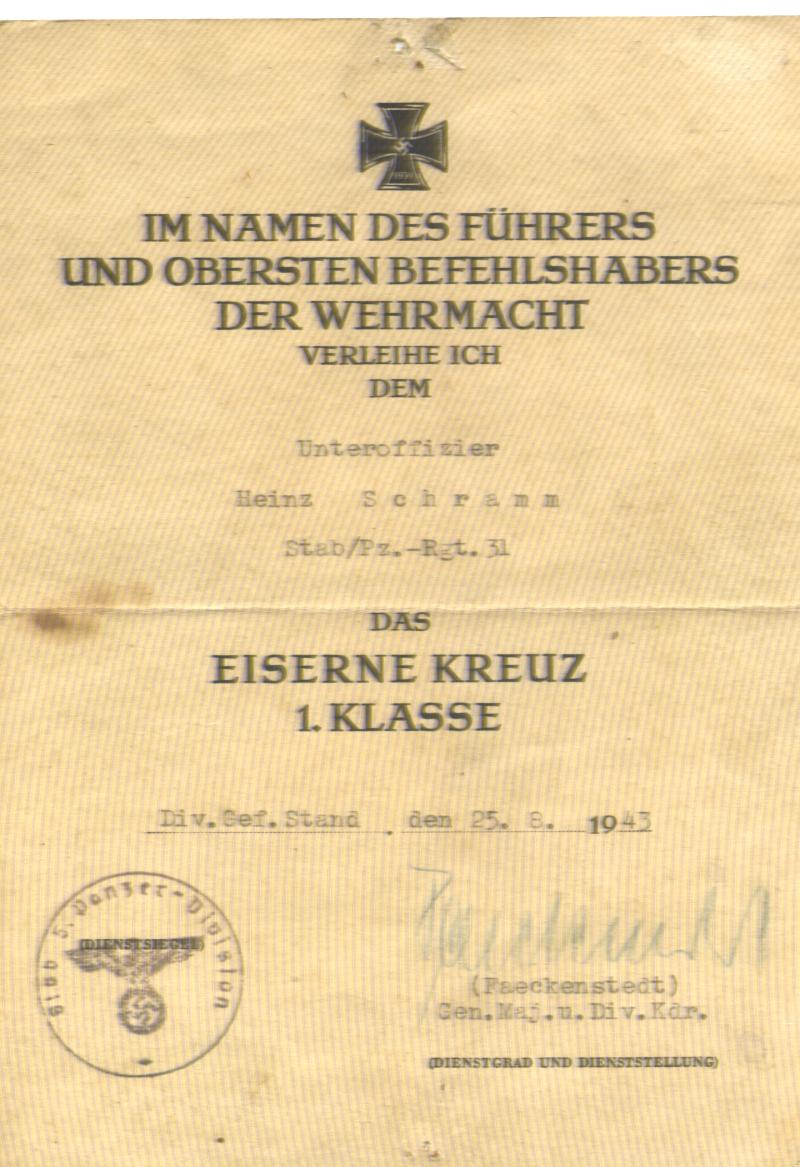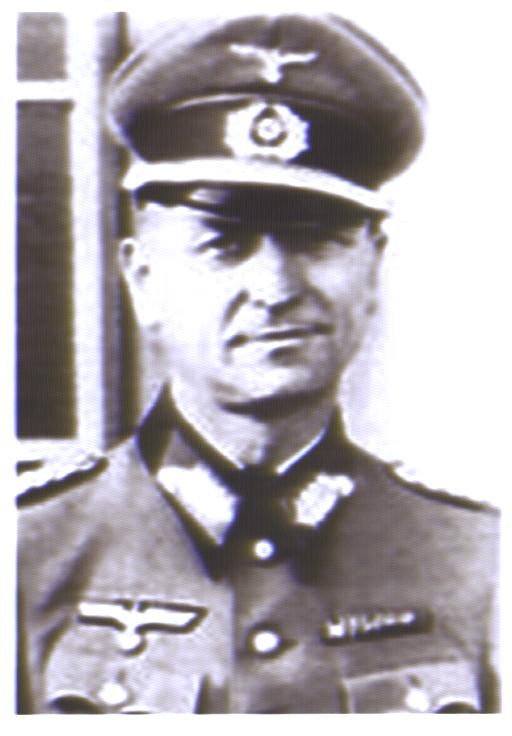

|
FAECKENSTEDT Ernst
Faeckenstedt, Ernst
* 17. Dezember 1896, Dresden
+ 6. April 1961, Höxter
Ernst Faeckenstedt entered on 15 August 1914 as a flag boy in the replacement eskadron of the Jäger-Regiment on horse No. 2, in which he was promoted on 1 November 1914 to flag-junker-liberating and on 10 December 1914 to flag-junker-sergeant. On 20 January 1915 he was transferred to the Jäger Regiment on Horse No. 2, where he was promoted to ensign on 10 February 1915 and lieutenant on 22 March 1915. From 20 October 1915, he commanded the regiment's MG train. On July 8, 1916, he was wounded and transferred to the regiment's replacement eskadron until he returned to the front on December 5, 1916. On January 21, 1917, he was assigned to lead the oknista district command. From 25 March 1917 he served as an MG officer in the regimental staff of the Hunter Regiment on Horse No. 2 and from 30 June 1917 he led the mine-thrower department of the regiment. From January 15, 1918, he was a teacher in the Replacement Cavalry MG Department and from March 1, 1918 adjutant of the unit. On July 17, 1918, he became 1st Ordonnance Officer in the 3rd Infantry Division, until he returned to the Hunter Regiment on Horse No. 2 on December 18, 1918. On January 10, 1919, he became 1st Ordonnance Officer in the Staff of Cavalry Rifle Command 38, until he was placed on leave on September 1, 1919. On December 1, 1919, he was transferred to the Reichswehr-Reiter-Regiment 6. On 1 April 1920, he was transferred to Motor Vehicle Division 20 and commanded to service to Reiter Regiment 1. On December 15, 1920, he was transferred to Reiter Regiment 1. From 1 February 1924 he served in the regimental staff, from 1 June 1924 as a regimental adjutant. On 31 July 1925 he was promoted to lieutenant colonel and on 1 April 1929 he was transferred to the regiment's e-eskadron. From 1 October 1929 Faeckenstedt commanded the 3rd Eskadron and on 1 February 1931 he was promoted to rittmeister. On October 1, 1933, he was made available to the chief of the army leadership to be commanded to the then still secret war academy. He was then appointed to the 2nd Cavalry Division and the General Staff of the Army on 1 August 1934. On 1 October 1934 he was transferred to the General Staff of the Reichswehr advertising office Liegnitz, which was renamed liegnitz on 1 May 1935. On 1 August 1935 he was transferred to the General Staff, while in his position, and on 15 October 1935 he was appointed Ia in the General Staff of the 5th Reiter Brigade. He was promoted to major on January 18, 1936. On 6 October 1936 he was appointed Ia to the General Staff of the 1st Cavalry Brigade and from 10 November 1938 to the General Staff of the Third Army Corps. Promoted to Lieutenant Colonel on 1 January 1939, he became Chief of the General Staff of the 3rd Army Corps on 12 May 1940. Promoted to colonel on 1 December 1940, he was appointed to the General Staff of the 1st Panzer Army on 10 April 1942, where he became Chief of the General Staff on 24 April 1942. On 1 July 1942 he was promoted to Major General. On 15 March 1943, Major General Faeckenstedt was appointed commander of the 5th Panzer Division and promoted to Lieutenant General on 1 September 1943. Due to illness, he was transferred to the Führerreserve on 30 October 1943. On December 15, 1943, he became Chief of the General Staff of the Deputy General Command of the Vith Army Corps, and from November 15, 1944, of the XII Army Corps. On May 6, 1945, he was taken into captivity, from which he was released on March 22, 1948.
Signed Iron Cross 1st Class document signed while Commander of the 5 Panzer Division, at that time the Division was involved in defensive operations after the failure of the Battle of Kursk
Price: $85.00
Please contact us before ordering to confirm availability and shipping costs.
Buy now with your credit card
other ways to buy
|


